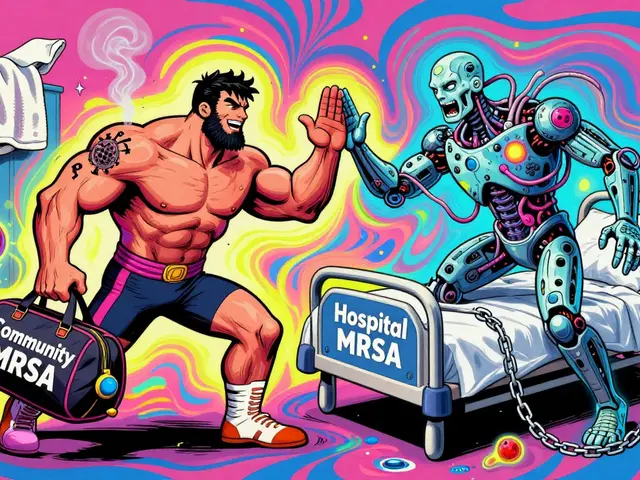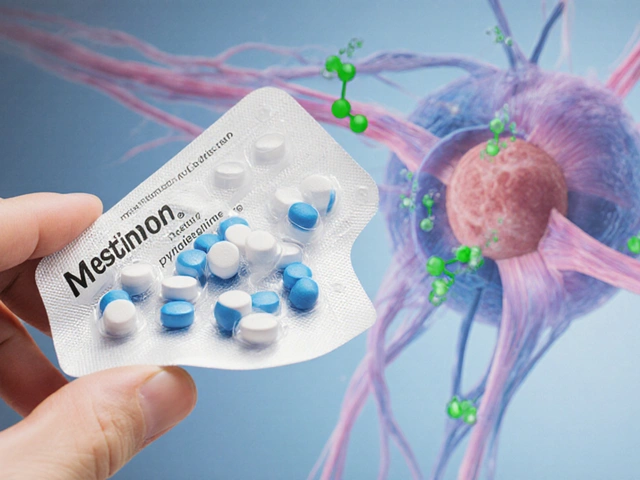
Health Guides – Simple Advice for Everyday Use
Welcome to the Health section of First Pharmacy UK. Here you’ll find short, easy‑to‑read articles that explain how common medicines work, what to watch out for, and when you might need a safer alternative. Everything is written with NHS guidance in mind, so you can trust the advice is reliable and suited to life in the UK.
We know you don’t have time to read long scientific papers. That’s why each guide focuses on the practical questions you ask yourself: What does this drug treat? How do I take it safely? What side effects should I expect? And are there any interactions with other medicines or supplements you might already be using?
Top Articles to Read Right Now
Below are three of our most popular posts. They cover a range of conditions and drug types, so you’ll quickly find something that matches what you need.
- Quibron‑T (Theophylline) Uses, Dosage, Side Effects, Interactions [2025 Guide] – Learn when doctors prescribe theophylline, how to dose it correctly, and which medicines can cause problems.
- Metoclopramide (Reglan): Uses, Dosage, Side Effects, Warnings, and Safer Alternatives – Get the basics on this anti‑nausea drug, who should avoid it, and safer options if you’re worried about side effects.
- Crotamiton Cream vs Lotion: How to Choose the Right Formula for Itch or Scabies – Find out the difference between cream and lotion forms, how to apply them, and what to look for when treating itchy skin or scabies.
Each article breaks the information into short sections, uses bullet points where needed, and ends with a quick checklist you can keep handy.
How to Use This Site
Start by scanning the headlines. If a title matches a symptom, condition, or medication you’re dealing with, click through. Inside the article you’ll see clear headings like “What it treats,” “How to take it,” and “When to call a doctor.” Those sections let you find the exact answer you need without scrolling through pages of text.
If you’re not sure which drug to look up, use the search bar at the top of the site. Type in the name of the medicine, a symptom, or the condition you’re concerned about and you’ll be taken to the most relevant guide.
Remember, these guides are for informational purposes only. They don’t replace a conversation with your GP or pharmacist. If anything feels unclear, or if you notice new symptoms, give your healthcare provider a call.
We update our articles regularly to keep up with the latest NHS guidance and new research. Check back often, or sign up for email alerts so you never miss a refreshed guide.
Health decisions can feel overwhelming, but with the right info you can feel confident about what’s best for you. Browse, read, and use the tips that fit your life – it’s that simple.
-
23 Feb

-
21 Feb

Mouth Sores and Ulcers from Medications: Prevention and Care
Medication-induced mouth sores are common and painful, but preventable. Learn evidence-backed strategies like cryotherapy, benzydamine rinses, and dental prep to avoid or reduce ulcers during chemo and radiation. -
18 Feb

FDA’s Abbreviated New Drug Application Process Explained: How Generic Drugs Get Approved
The FDA's ANDA process lets generic drugs reach the market faster and cheaper by proving they're bioequivalent to brand-name drugs. It's saved U.S. patients $373 billion since 2021 and powers 90% of prescriptions. -
16 Feb
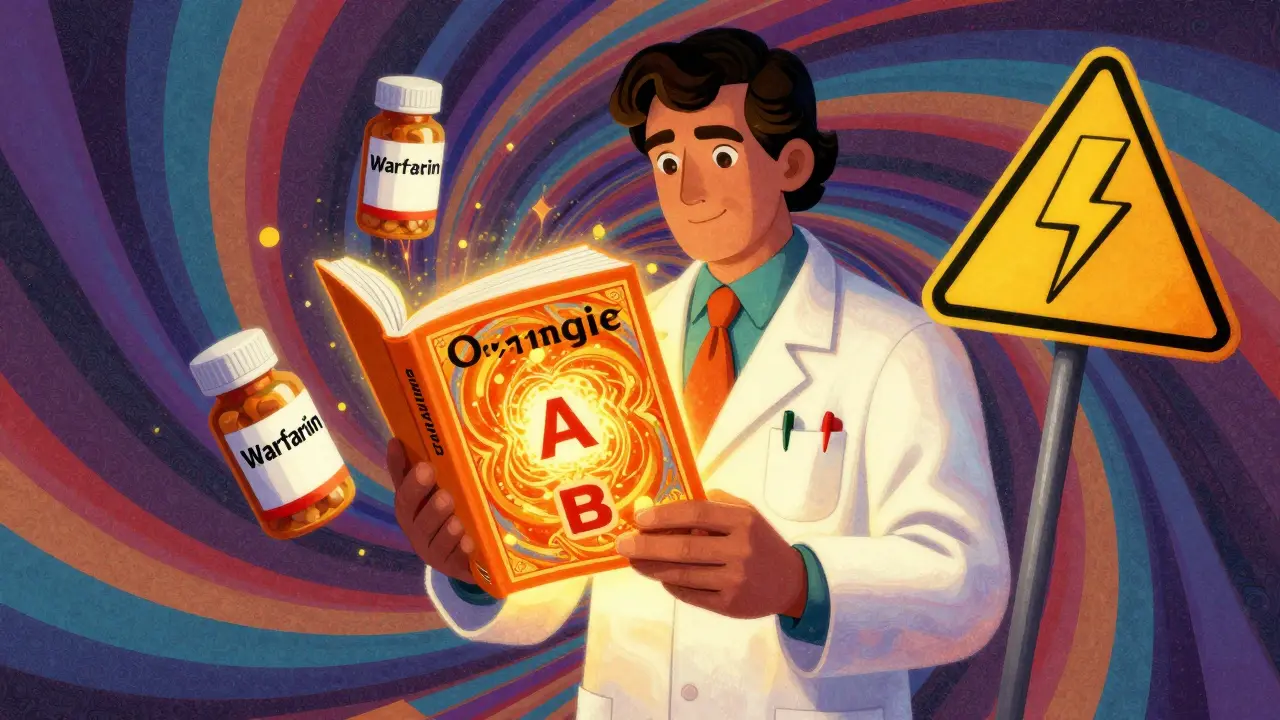
How to Use the FDA Orange Book and Purple Book for Drug Safety Information
Learn how to use the FDA's Orange Book and Purple Book to verify drug safety, spot withdrawn medications, and understand biosimilar approvals. Essential for patients, pharmacists, and clinicians. -
14 Feb
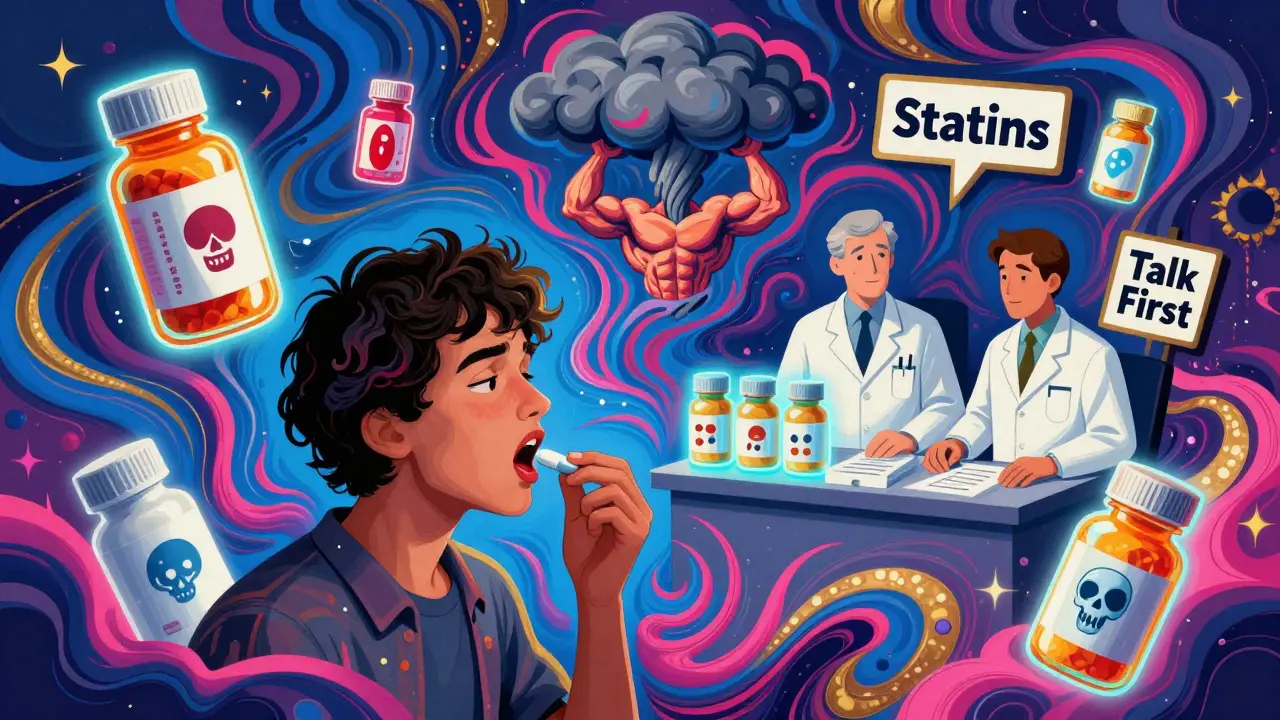
Common Myths About Medication Side Effects Debunked
Many people stop taking medications because of misunderstood side effects. This article debunks five dangerous myths about antibiotics, statins, OTC painkillers, and more-with evidence from real studies and patient data. -
11 Feb
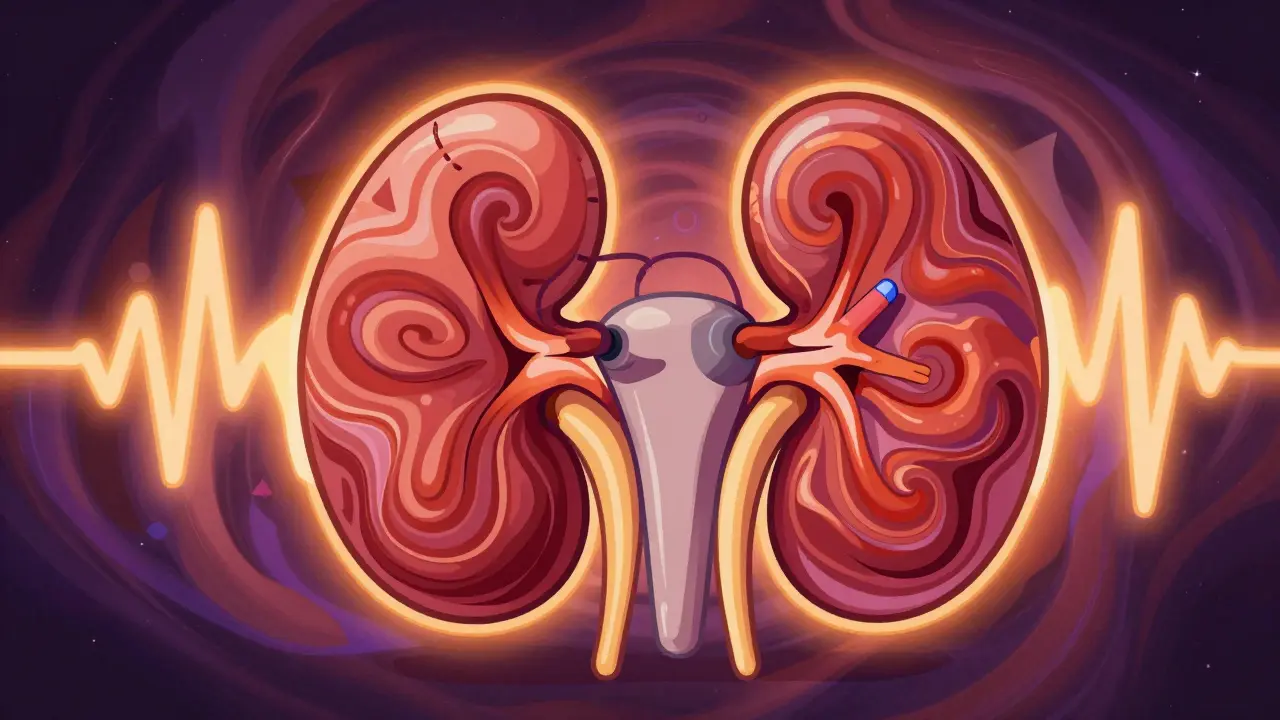
Renal Ultrasound and Imaging: Evaluating Obstruction and Size
Renal ultrasound is the first-line test for evaluating kidney obstruction and size. It detects hydronephrosis, measures kidney dimensions, and uses the resistive index to identify blockages-all without radiation. Safe, quick, and non-invasive, it's essential for emergency, pediatric, and pregnancy cases. -
9 Feb
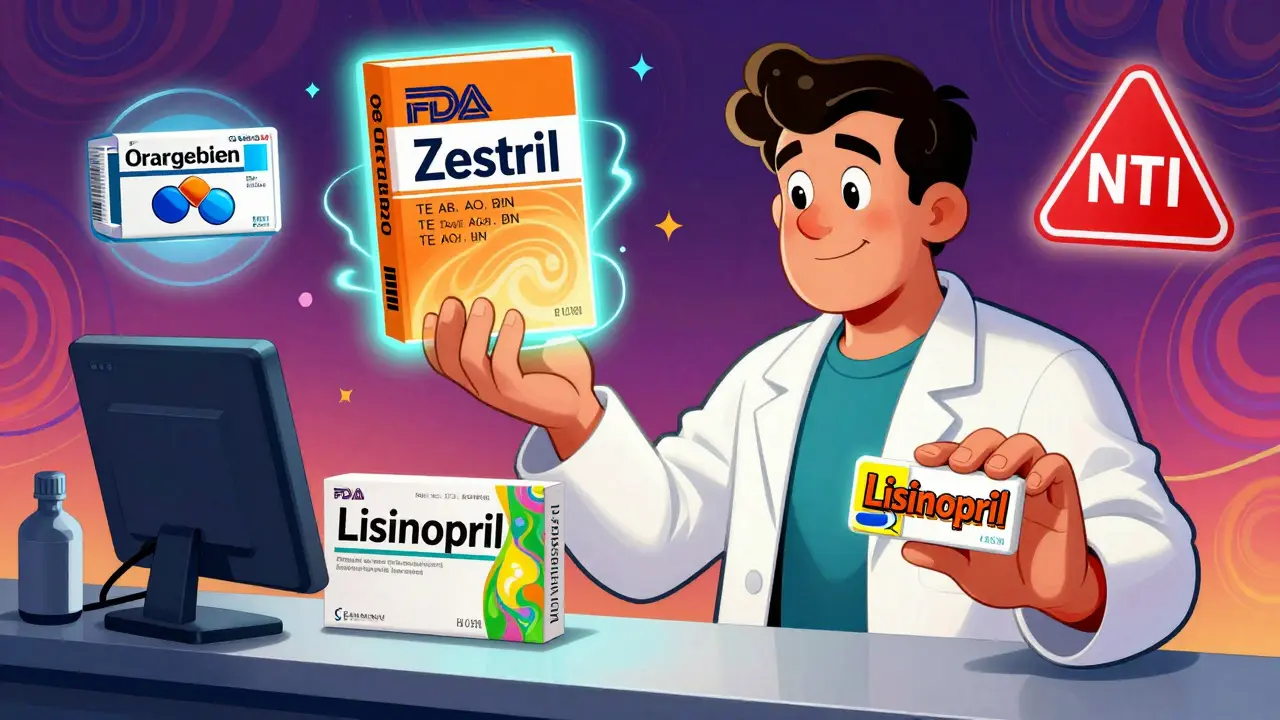
Generic vs Brand Identification in Pharmacy Systems: Best Practices
Learn how pharmacy systems correctly identify generic and brand-name drugs to ensure patient safety, reduce errors, and cut costs. Essential best practices for pharmacists and healthcare providers. -
7 Feb
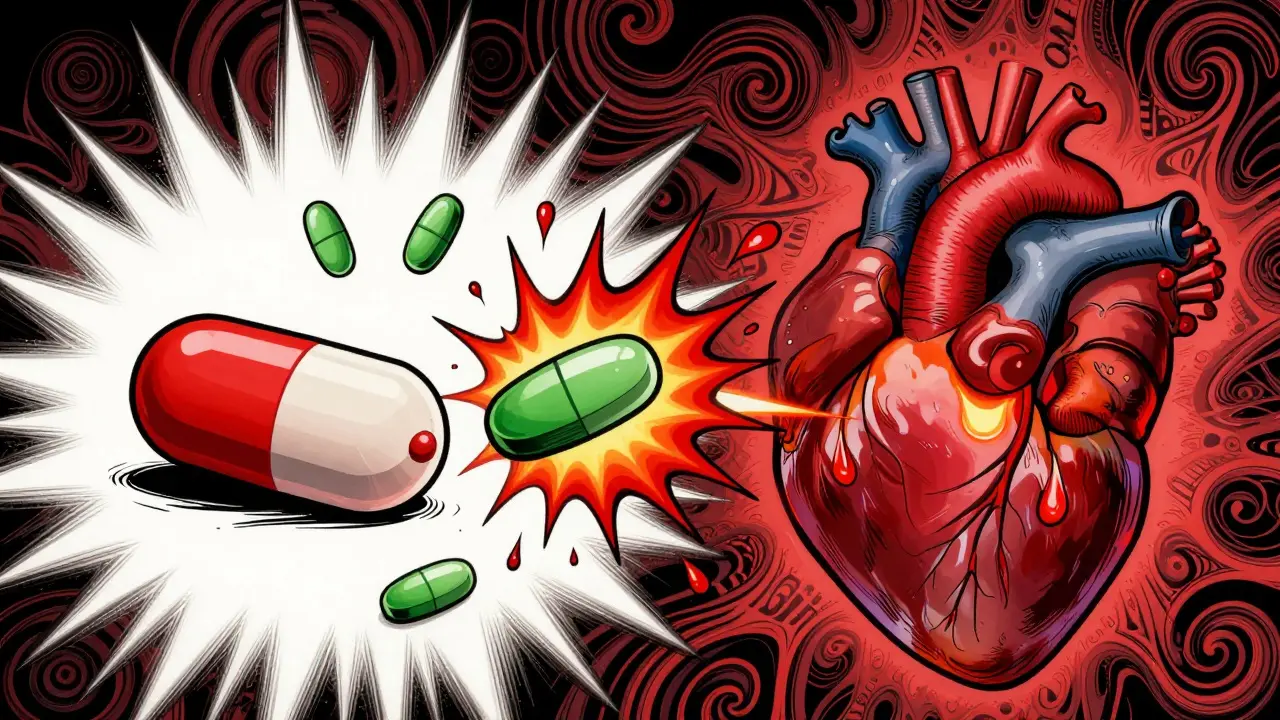
Warfarin and NSAIDs: The Bleeding Risk Explained in Detail
Combining warfarin with NSAIDs doubles the risk of serious bleeding. This detailed guide explains why, which drugs are most dangerous, what to use instead, and how to stay safe. -
7 Feb

Monitoring Antidepressant Efficacy vs Side Effect Burden: Patient Strategies
Learn how to track antidepressant effectiveness and side effects using simple, evidence-based tools like PHQ-9 and mood journals. Take control of your treatment with practical strategies backed by clinical research. -
5 Feb

Family Overdose Emergency Plan: Step-by-Step Guide for 2026
Learn how to prepare your family for medication overdose emergencies. This guide covers recognizing overdose signs, using naloxone, and step-by-step emergency steps. Essential for households with prescription opioids. Save lives with a simple plan. -
4 Feb

From ANDA to Shelf: How Generic Drugs Reach Retail Pharmacies
Discover how generic drugs go from FDA approval to your pharmacy shelf, including regulatory hurdles, manufacturing challenges, and distribution logistics. Learn why some generics take months to become available despite approval. -
3 Feb

How to Create a Food and Medication Interaction Checklist at Home
Learn how to create a personalized food and medication interaction checklist at home to prevent dangerous side effects, reduce ER visits, and improve medication safety with simple, proven steps.
